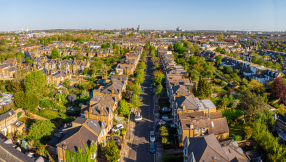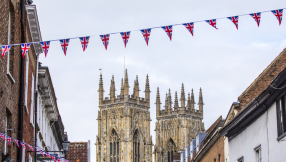
To many people, the decision to make church schools state funded is something fraught with controversy. They argue that this violates unwritten principles of a separation of church and state, and that it means the government is spending money on creating a potential cultural echo-chamber where religious groups can further isolate themselves, causing social problems in the long term.
Fundamentally though, there is a religious freedom question. Parents have a right to educate their children in a manner consistent with their beliefs, and access to that right shouldn't be conditional on financial resources. Supporters of state-funded church schools also argue that if the state treats all religions fairly, eschewing preference of one over the others, and that the curriculum taught in the schools meets the same essential standards applied in the rest of the country, there is no reason church schools can't be part of the wider national education system.
That was the decision the government came to under the previous Labour government, and it has been a decision that the Coalition has stuck with, and even enhanced with the introduction of free schools. But now, many in Wales are arguing that if church schools are part of the state system, and the government is allowing citizens that choice, then they have to be an equal part of the system, and receive access to all the same resources. Recently, that's become a problem when it comes to the question of transport.
Because of systems put in place by the Welsh Assembly on matters of transport, councils must provide free transport if secondary school pupils live three or more miles away. But for pupils travelling to a church school when a mainstream school is nearer, councils aren't required to do the same. This is particularly galling when provision is offered to schools teaching in the Welsh language which may not be the closest to a pupil's home.
So far, funding for transport to church schools has only been withdrawn by one council, Neath Port Talbot, but local authorities in Conway are also considering the measure, and there will be a public consultation in Bridgend in December. Wrexham town council has withdrawn all funding for transport to schools that are not the closest to where the pupil lives, and Flintshire county has said that funding can only be given if parents can prove their children's beliefs with a baptism certificate.
The Reverend Edwin Counsell, education advisor for the Church of Wales said: "I am deeply concerned that this short-sighted attempt to save money will have a huge impact on the ability of parents in Wales to make an informed choice to send their children to a church school. In the longer term, decisions like this could seriously disadvantage the church school sector."
He pointed out that though the law was not commanding in support of him in this measure, the intent was very clear: "The Learner Travel Measure (2008) encourages local authorities to make transport available to the nearest suitable school to a pupil's home, with Welsh medium and denominational schools available as realistic choices…"
"The Measure asks that denominational provision should be a realistic choice; but these proposals will make it an unrealistic dream for many parents seeking the best for their children…"
"The proposals that are starting to come forward from some local authorities are trying to use that piece of legislation in a way that it was never intended - yes, it is at their discretion to transport children to Church schools, but there is a clear expectation that they should go the extra mile for all children."
Ultimately, the question that has to be asked is whether the inclusion of church schools in the curriculum was as a genuine part of the state school system or not. If they were, then it means the state is obligated to provide transport services to help them as part of the provision of choice. If church schools are considered a genuine option and are offered out of response to the nature of the freedom of religion concern, then transport to them should be offered alongside every other school. If they're not, then the state needs to withdraw its funding and make it clear that church schools are optional, and not something they intend to help people get access to.
Given not only the religious freedom issue, but also the hierocracy in making this offer open to Welsh language schools but not church schools, the local councils have very little in the way of defendable argument in this situation. To be fair to everyone, faith school transport access must be free to all.













